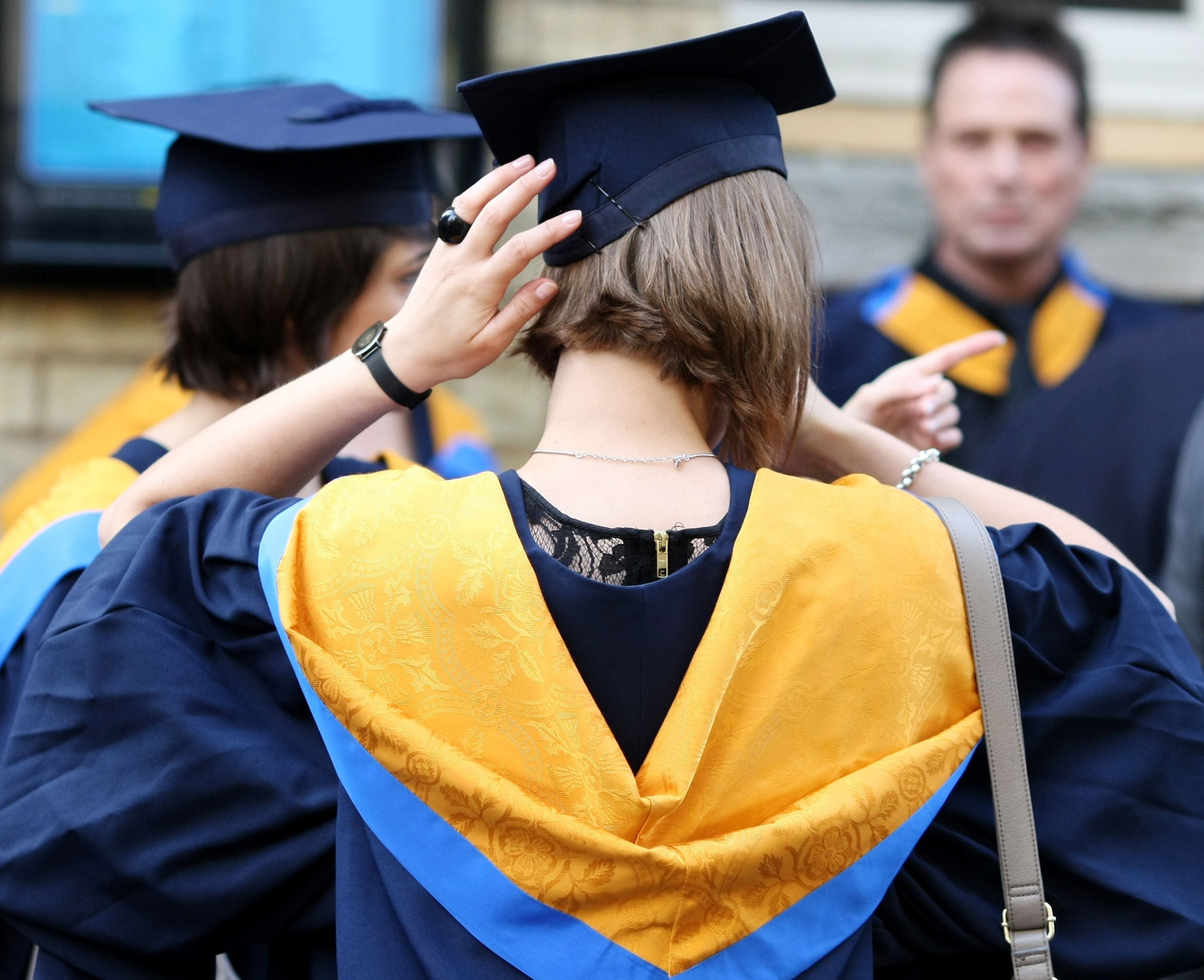More universities handing out high number of ‘strings attached’ unconditional offers despite crackdown
Education secretary will write to institutions continuing to use the offers and call on them to stamp out the practice

The number of universities where the majority of offers made to school leavers are unconditional with ‘strings attached’ has grown despite a crackdown, according to new figures.
The latest data from Ucas shows that 17 universities made conditional unconditional offers to at least a fifth of all applicants – two more institutions than in 2018.
Last year, seven universities made conditional unconditional offers to more than half of applicants, compared with just two universities in 2018.
However, Ucas has said that institutions are likely this year to scrap the controversial “conditional unconditional offers”, in which students are told they are guaranteed a place but only if they make it their first choice.
Ministers and school leaders have repeatedly warned that offering degree places regardless of A-level results can demotivate sixth-formers and lead to worse exam grades.
The education secretary, Gavin Williamson, has said he will write to all universities that are continuing to use these offers to ask them to end the practice immediately.
Falmouth University made conditional unconditional offers to 68 per cent of applicants, ahead of 66 per cent at Canterbury Christ Church and 59 per cent at Lincoln.
A record one in four university applicants from England, Wales and Northern Ireland were given a conditional unconditional offer last year.
But the admissions service has predicted that up to three in four universities and colleges that made these offers in 2019 could abandon the practice this year, saying “the tide is turning”.
A number of universities and colleges have already said publicly that they no longer plan to make such offers, and students are only marginally more likely to choose these offers as their firm choice, Ucas said.
Falmouth University, which piloted the use of conditional unconditional offers in combination with applicant interviews in 2019, has decided not to use these offers for the next recruitment cycle.
Clare Marchant, chief executive of Ucas, said: “Whilst we predict a fall in these types of offers, we will likely see universities and colleges deploy other offer-making strategies, including direct unconditionals, in this competitive market.”
Geoff Barton, general secretary of the Association of School and College Leaders, said that he was concerned the offers would be replaced by “other marketing tactics”.
“The widespread use of any type of unconditional offer as a means of putting bums on seats will continue to lead to students ending up on courses which may not be the best choice for them and taking their foot off the pedal in their A-levels,” he said.
Mr Williamson said of the latest figures: “Under no circumstances are ‘conditional unconditional’ offers justified and I will write to all universities continuing them asking them to end this practice. We know students who accept unconditional offers are more likely to miss their predicted A-levels.”
“I welcome those institutions leading the way in committing to end these offers, but there is clearly more to do,” he added.
Nicola Dandridge, chief executive of the Office for Students (OfS), said: “These offers actually come with strings attached, and risk placing undue pressure on students. Any such pressure is both unacceptable and unfair.
“Universities’ admissions policies should always be designed with the student, and not the institution, in mind.”
A Universities UK spokesperson said: “While there are clear benefits in universities being able to use a variety of offer-making practices to reflect an individual student’s circumstances, potential and the context of their application, it is important all are used appropriately, proportionately and in the best interests of students.
“As part of our Fair Admissions review we are working with students, school, college, university and Ucas leaders to strengthen higher education admissions in the interest of fairness, transparency and in encouraging aspiration.”
Subscribe to Independent Premium to bookmark this article
Want to bookmark your favourite articles and stories to read or reference later? Start your Independent Premium subscription today.

Join our commenting forum
Join thought-provoking conversations, follow other Independent readers and see their replies